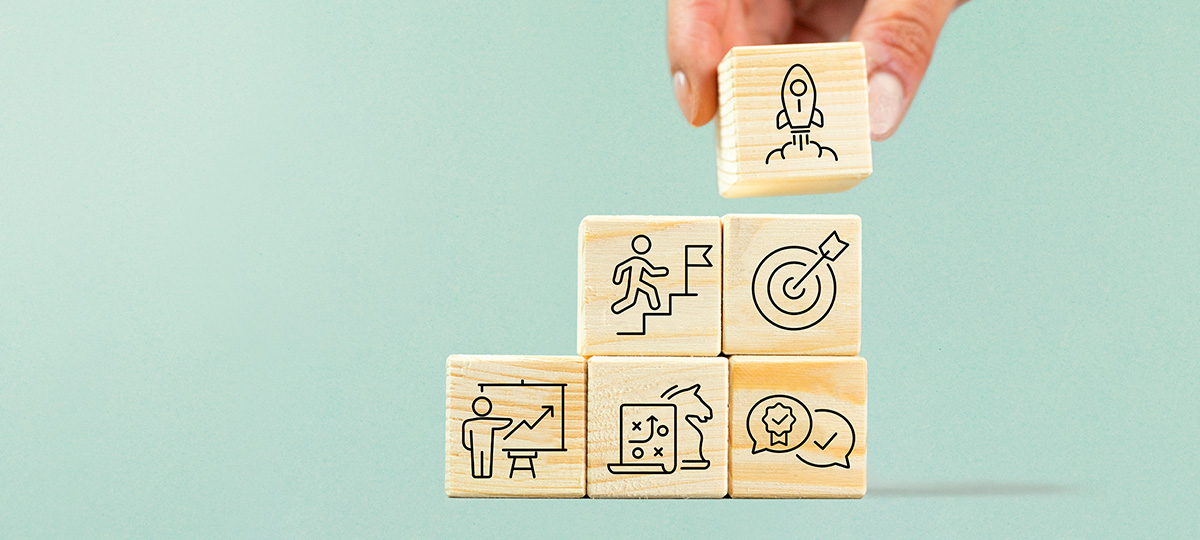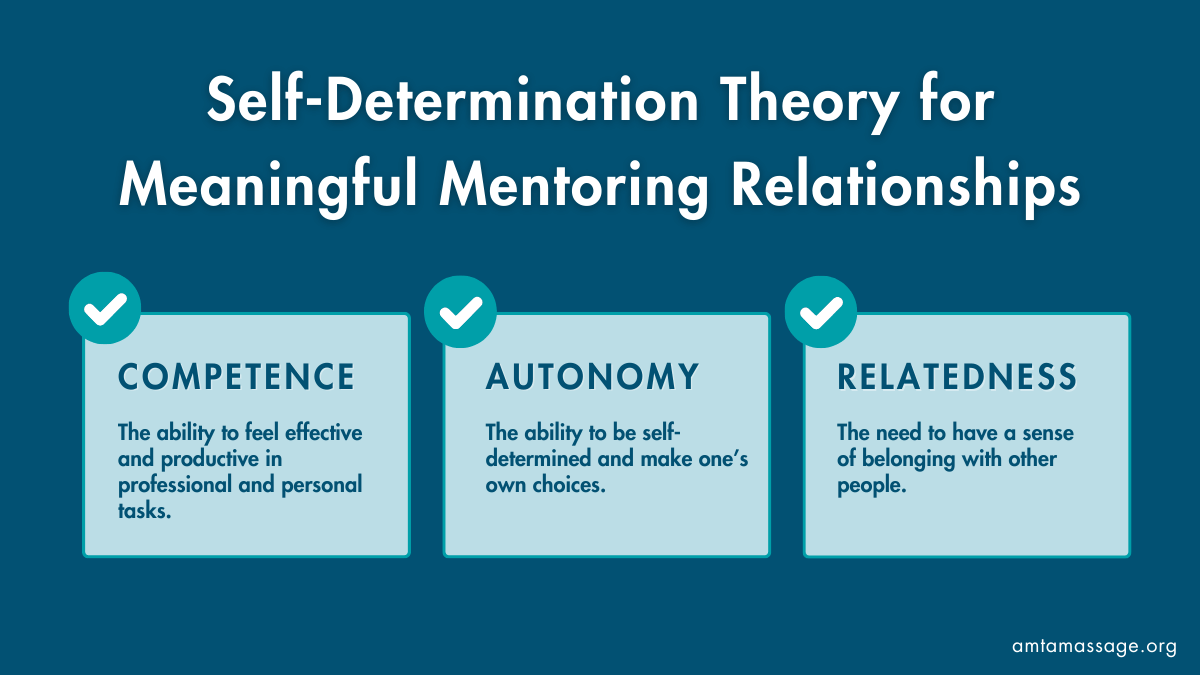Massage Therapy Journal
Drawing A Line
How to define and maintain boundaries as a massage therapist.
Mentoring has been valued for centuries across a broad variety of professions, and massage therapy is no different.
by Jeffrey Montoya, November 1, 2024

One of my fondest childhood memories is sitting at the kitchen table with my grandmother who would help me with my homework. Though my grandmother only had an eighth-grade education, she would sit with me patiently, teaching me reading, spelling (which was the hardest for me), and math.
My grandmother grew up on an American Indian reservation in New Mexico. As a child, she was taken hours away from her family to attend a boarding school run by nuns—first through eighth grade.
Looking back on this time, the information my grandmother taught me was what made a very real difference in my life. The faith she had in me that I can learn was what was most important to me.
Since those early, formative years sitting at the table with her, I have gone on to earn several degrees—including a doctorate—none of which I think would have happened without my grandmother helping me with my homework as a child.
The lesson: Having people in our lives who support and inspire us can be foundational.
Sometimes, these relationships happen organically, and other times, we need to seek out and build these relationships.
Mentorship is one way we can foster personal and professional support.
Mentoring can be defined as a sustained relationship between an experienced, trusted person who offers advice and guidance to a less experienced person. The mentoring process helps a mentee fuel their personal and professional growth.
The term “mentor” comes from a character in Homer’s epic poem “The Odyssey.” In this poem, Odysseus leaves his wife and son to lead his army to fight in the Trojan War (hint: the war with the wooden horse). When he leaves, Odysseus asks his old friend, Mentor, to look after his son, Telemachus.
Odysseus is gone for 10 years, and in his absence, Telemachus needs some help finding his way. The gods decide to intervene and send Athena to appear to Telemachus disguised as Mentor to give him the advice and courage he needs to reclaim his birthright.
Throughout the centuries, the model of an experienced person taking an untrained or lesser experienced person under their wing to guide and develop expertise has been widely utilized.
Examples include guild and trade apprenticeships during the Middle Ages and medical apprenticeships during the 19th century. In the 1970s, mentorship even grew as a model used for corporate executive development.
Currently, mentoring programs are widespread in a variety of health professions. A variety of research is being conducted to better understand the efficacy of mentoring.
Many massage therapists have benefited from mentoring relationships. Many times, these are more informal arrangements that develop organically. Other times, the therapist may have sought out the mentor through more formal programs, such as AMTA’s Mentoring Program.
Other times, mentoring takes place alongside other established roles, such as teacher and student or supervisor and employee. When mentoring takes place within these other relationships, clear boundaries must be established to make sure that the positive function of mentoring is maintained.
One framework that might be helpful in creating meaningful mentoring relationships and opportunities is self-determination theory, which was developed by psychologists Edward Deci and Richard Ryan.
According to self-determination theory: competence, autonomy and relatedness are three interconnected needs which, when fulfilled, create optimal motivation for an individual to thrive, both personally and professionally, by enhancing performance, increasing persistence and facilitating growth.

A mentoring relationship that helps fulfill these three needs can be highly fruitful.
Competence is the ability to feel effective and productive in professional and personal tasks. A mentor can help a mentee build competency in a variety of ways. For example, the mentor may teach a particular skill, such as bookkeeping or using social media for marketing. Or, they may teach how to access resources or information.
Early on in a massage career, a student or new professional may simply need the opportunity to practice on someone who can provide good feedback and suggestions.
It’s important to remember that this sharing of knowledge is a two-way street. Younger massage therapists may have experience and knowledge that veteran practitioners struggle to obtain, like technology, for example. Since many massage therapists come to massage as a second career, a mentee may have life experience and past occupational training they can share with their mentor, too.
Building competency is as much about building confidence as it is about the ability related to a particular skill. Having a caring role model plays a significant role in success. Mentors can act as champions and coaches to help celebrate successes and overcome setbacks.
Massage therapists understand the concept of autonomy from our training in ethics. The ability to be self-determined and make our own choices is important to our human experience. People who experience autonomy have a greater sense of freedom than people who believe they are being controlled. Many people report that nothing makes a job more dreadful than being micromanaged.
Mentoring can help support our sense of autonomy. Through thoughtful words and actions, a mentor can help to define choices and possibilities surrounding various circumstances in the mentee’s experiences. This work might include helping the mentee brainstorm courses of action and listing the pros and cons of each possibility.
A mentor might also share examples of how they’ve made important choices in the past. Note, the work of the mentor is to support the mentee’s choices even when they do not align with the mentor’s own preferences.
Relatedness, sometimes called connection, refers to the need to have a sense of belonging with other people. Maintaining meaningful relationships—both professionally and personally—is important for the well-being of massage therapists.
Many massage therapists spend much of their time in treatment rooms with their clients, often with little to no talking, and sometimes in solo practices without any coworkers. While our client relationships are important and meaningful, these relationships exist solely for the therapeutic benefit of the client, which may put a further drain on the therapist.
Since mentorship at its foundation is a relationship, engaging in the process can help fulfill the need for relatedness and connection for both the mentee and mentor. Another way the mentor can help the mentee in meeting their need for relatedness is by making introductions to professionals for networking and support.
Mentors may also help the mentee navigate relationship difficulties with coworkers or colleagues, and provide support to the mentee in creating a good work-life balance so that they have time to cultivate and benefit from personal relationships outside of work.
There are also real benefits for the mentor, too. Serving as a mentor can help develop and fine-tune skills in areas such as leadership and communication. Additionally, mentoring can help expand our networks and professional connections. Most of all, helping others feels good.
Massage therapists can find a mentor in a variety of ways. AMTA’s Mentoring Program is an excellent way of finding a mentor or, if you have experience to share, becoming a mentor.
Massage therapists may also approach a therapist they know and trust and ask if they’d be open to a mentorship. Often, massage educators are elated to have the opportunity to mentor past students. Sometimes, too, massage therapists may benefit from mentors in other related health professions, such as physical therapists, osteopathic physicians and chiropractors.
Peer mentorship is another option for creating valuable mentoring relationships. In peer mentorship, the arrangement is not based on a more experienced professional guiding a less experienced professional but rather professionals with similar experience levels collaborating in a mentorship capacity. Peer mentorship groups might include three to five professionals who support one another.
At the start of the mentoring relationship, it’s important to be specific in establishing expectations and time commitments. Set a schedule of meetings or other interactions.
For example, you might commit to having coffee together for an hour once a month or meeting each Monday for 20 minutes by phone or video. Agree on a length of time to work together and do a check-in at set intervals to make sure the arrangement is mutually working.
Be clear about goals and desired outcomes. Using tools such as setting SMART goals (Specific, Measurable, Achievable, Relevant, and Time-Bound) for professional development or conducting a SWOT analysis (Strengths, Weaknesses, Opportunities, and Threats) for business planning can be helpful to work strategically and track progress.
Mentorship can be useful to help massage therapists grow professionally and achieve their goals. Mentorship relationships that foster competency, autonomy and relatedness can help foster high-level motivation and build success. Serving as a mentor or participating in peer mentorship or a mentoring group are meaningful ways to give back to our profession.
1. Agree on the length of time to work together, and do check-ins at regular intervals to ensure the relationship is working for you both.
2. Be specific about expectations and time commitments. Set a schedule for meetings or other interactions—and stick to it!
3. Get clear and specific about goals and desired outcomes. Consider using tools like SMART goals and SWOT analysis to track progress.
______________________________
Share Your Feedback on Massage Therapy Journal
Take our quick survey to share your insights and help us enhance our publication!